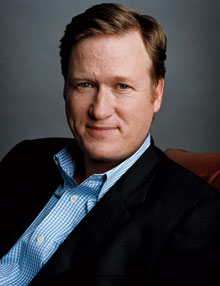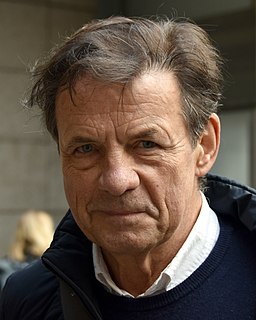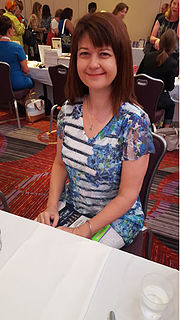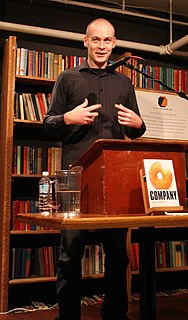A Quote by Pat Mora
It is always a tense moment for an author to see how someone hasillustrated his or her story, because the author has lived for so long with these characters, sometimes for years.
Related Quotes
There is no obligation for the author of a film to believe in, or to sympathise with, the moral behaviour of his characters. Nor is he necessarily to be accredited with the same opinions as his characters. Nor is it necessary or obligatory for him to believe in the tenet of his construction - all of which is a disclaimer to the notion that the author of Drowning by Numbers believes that all men are weak, enfeebled, loutish, boorish and generally inadequate and incompetent as partners for women. But it's a thought.
I spent many years writing and directing in radio drama, so I am comfortable with an audience or a microphone, but I do worry about the blurring of an author's public persona with the work itself. A good 'performer' can make a mediocre book sound strong, and a shy author can leave listeners missing the excellence of his or her writing.
I see God now as an unimaginative writer of popular fictions, someone who builds stories around sadistic and graceless plots, narratives that exist only to express His terror of a woman's power to choose who and how to love, to redefine love as she sees fit, not as God thinks it ought to be. The author is unworthy of His own characters.
I only know what it's like to be an author with social media. I can't compare. I do think we lose the mystery of the author. Today, I get tons of e-mails and Facebook messages from readers, and my goal with Twitter and Facebook is, if someone reaches out to me, I'm going to respond to them. I don't want to be an elitist author who is untouchable. I'm just a regular person, too. I will always respond to everybody.
Someone from the Internet Writing Workshop sent me a link to the Gender Genie, where you paste in a section of text and it uses an algorithm to detect whether the author is male or female. Or, if you're an author, you can tell whether you're really nailing your opposite-sex characters. I mean, nailing their dialog.
Michael Koryta is that rare author who is at once a compelling story teller and a fantastic writer. From the first sentence of THOSE WHO WISH ME DEAD, you'll be under his spell. His characters are living, breathing people you'll care about; his setting is a place you'll visit and stay-long after you've decided to leave because you're scared. You can't leave; you're trapped. There are too many nerve-jangling, beautifully written, razor sharp moments and you won't want to miss a single one. This is an absolute sizzler.



































